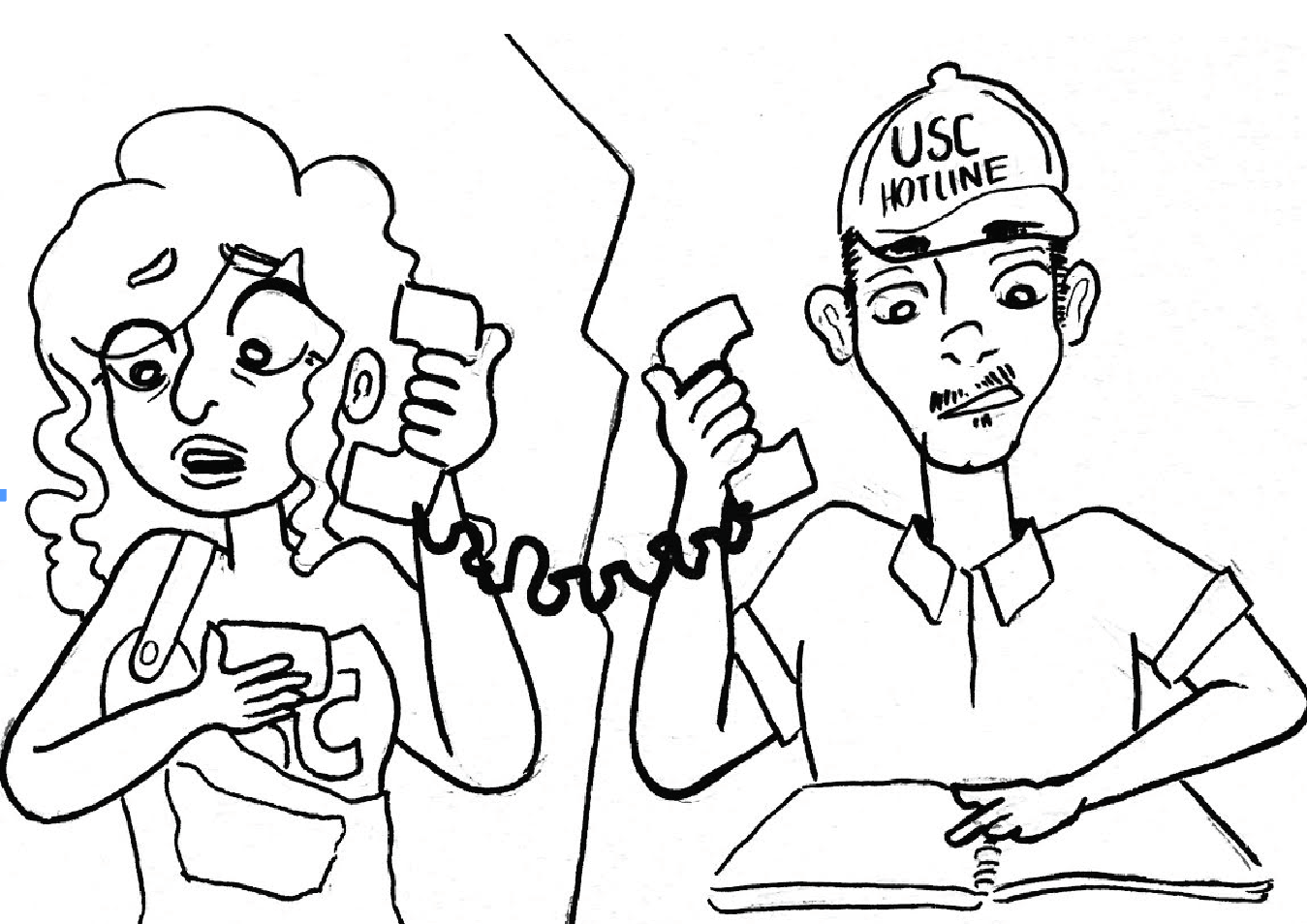USG hotline helps mental health visibility
Earlier this month, Undergraduate Student Government unveiled a new plan to update USC student ID cards to include a comprehensive list of resources and options to steer students through crises. This plan was approved at a Senate meeting on Sept. 5.
Currently, USC student ID cards list two phone numbers: the general USC safety number — an inoperational emergency line — and USG’s phone number. USG proposed to replace these two numbers with the Department of Public Safety emergency number, and a new USC 411 number which will also function as a crisis hotline. Both of these lines are still in the making and are currently not functional.
Particularly, the 411 line represents notable progress, underscoring the urgency and importance of student mental health and wellness, and places a strong emphasis on proactive crisis intervention. 411 is the telephone number for local directory assistance in the United States and Canada. But for USC, if a 411 line is created, it would be a general assistance line that could divert students to a crisis intervention line if needed, while also offering additional assistance. For example, the line would help direct students to more information about reporting sexual assault.
A number of details about the line and whether it would utilize an automated operator or a human representative remain unclear. But one thing is certain: It marks a significant, positive shift toward bringing students more direct help, and knocks down barriers to finding the right phone lines and offices for students faced with urgent situations.
Recent events relating to public safety and student well-being demonstrate a need for a comprehensive platform for students to know about their options. Due to ongoing issues involving campus sexual assault rates and the nation-wide epidemic of mental health issues on college campuses, USC must invest resources to ensure that students are well equipped to handle such situations.
USG’s proposed 411 line models the national 211 crisis line for community information and referral services. Established in July 2000, this line connects Americans to community-based organizations and government agencies to steer them through resources ranging from mental health to basic human needs. This model has trickled down to U.S. colleges as well, with California community colleges establishing a 24-hour anonymous counseling phone line for mental health emergencies.
As USG continues to roll out details of the new system, it must take caution in how its phone line treats mental health. For example, an automated operator could run the risk of treating the issue as impersonal. Additionally, the numbers on the backs of USC cards can only do so much. With long wait times and limited counselors at the Engemann Student Health Center, students already struggle with layers of bureaucracy.
The lack of a human voice to steer them through this search for resources could further cause them to feel like their experiences are a passing commodity to the University. Additionally, while providing the number for the Crisis Intervention Center may steer more students toward this resource, the overall availability of mental health resources on campus remains an issue in itself which a new phone line — while a step in the right direction — will not sweepingly fix.
The 411 line as well as increased visibility of crucial services mark a positive improvement to establishing connectivity and breaking down barriers to get help on campus. But this is only the first step.
USG must continue to improve not only by informing students of the resources available to them, but also by improving the actual resources the University offers. The expansion of services like mental health counseling that are severely limited but in high demand are as important as informing students of the existence of these resources. USG is bringing visibility to an important campus issue and deserves credit for this. But more can — and must — be done.

